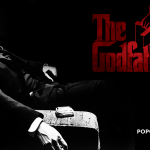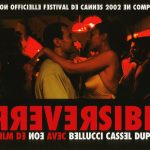The Wonder (2022)
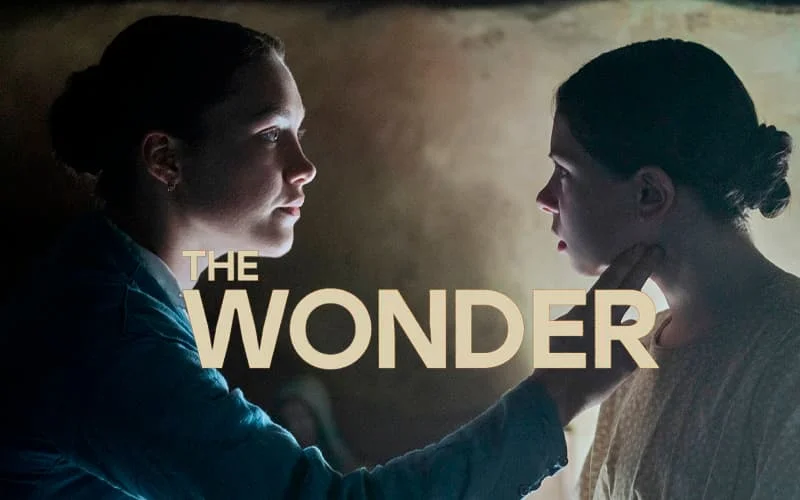
“The Wonder” is a 2022 historical psychological drama directed by Sebastián Lelio. The screenplay, written by Emma Donoghue, Sebastián Lelio, and Alice Birch, is based on Donoghue’s 2016 novel of the same name. The film is set in 19th-century Ireland and stars Florence Pugh in the lead role as Lib Wright, a nurse sent to investigate a young girl who claims to have survived without eating for months. The movie delves into themes of belief, survival, and the psychological toll of societal expectations, offering a haunting and thought-provoking experience for viewers.
Set in the 1860s, The Wonder follows Lib Wright, an English nurse, who is summoned to a small village in Ireland to observe Anna O’Donnell (Kíla Lord Cassidy), a young girl who appears to be living without food. The community views Anna’s survival as a miracle, and a group of local officials and religious figures are eager to maintain the belief. As Lib spends more time with Anna, she becomes suspicious of the girl’s condition and begins to unravel the mystery behind her survival. The film explores Lib’s struggle to navigate her own doubts and the societal pressures surrounding Anna’s story, questioning the intersection of faith, science, and human behavior.
Florence Pugh delivers a standout performance as Lib Wright, a woman caught between rationality and belief. Pugh’s portrayal of Lib is marked by quiet intensity, as she navigates the emotional and psychological weight of her investigation. She embodies the character’s inner conflict, as Lib wrestles with her own personal trauma while trying to maintain professionalism in a community rooted in deep superstition. Pugh’s subtle yet powerful performance adds depth to the narrative, making Lib a relatable and compelling figure in the face of overwhelming societal pressures.
At the heart of The Wonder is the exploration of faith, doubt, and human nature. The film raises important questions about belief and how people construct their realities, particularly in times of crisis or uncertainty. The local community believes Anna’s condition is a miracle, driven by religious faith, while Lib approaches it with skepticism, grounded in science and reason. The tension between faith and reason is a central theme, and the film poignantly examines the complexities of belief systems in a world where the line between faith and deception can be blurry.
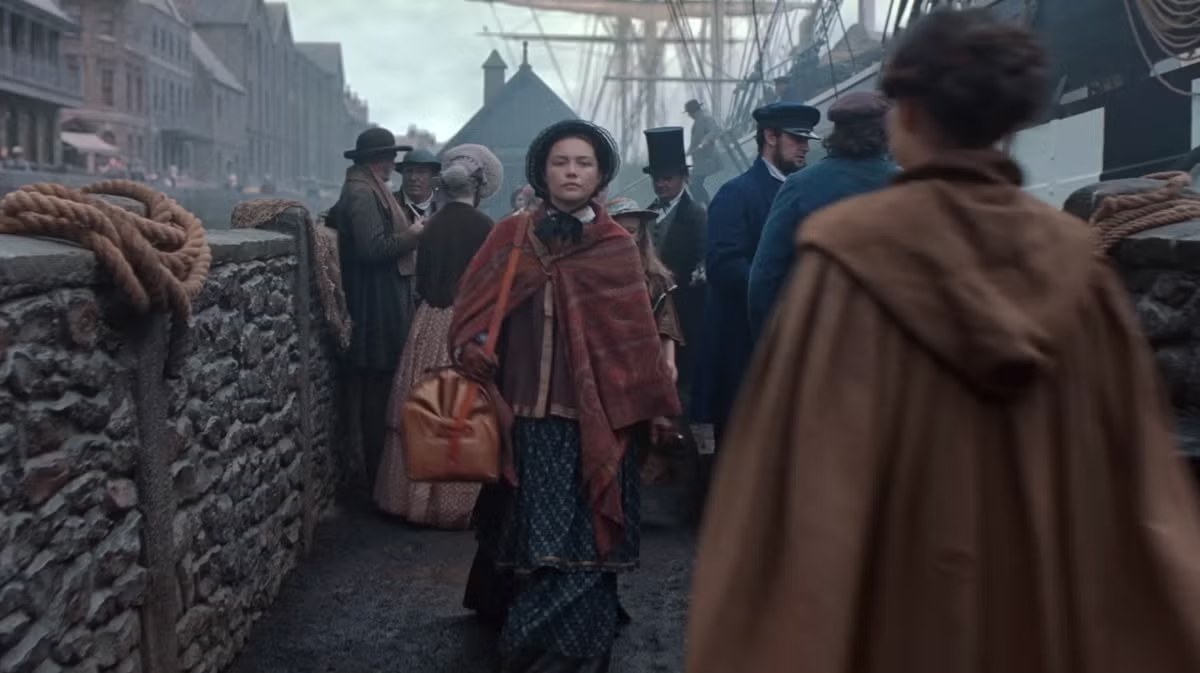
Director Sebastián Lelio creates a haunting atmosphere throughout The Wonder, using restrained pacing and meticulous cinematography to reflect the psychological tension of the story. The film is visually stunning, with shots of the bleak Irish countryside and dimly lit interiors contributing to a sense of isolation and unease. Lelio’s direction emphasizes the oppressive nature of the time period, where women’s voices are often ignored or suppressed, particularly through the character of Lib, whose perspective challenges the beliefs of the community. The setting, costumes, and period details further immerse the audience in the 19th-century world of the film.
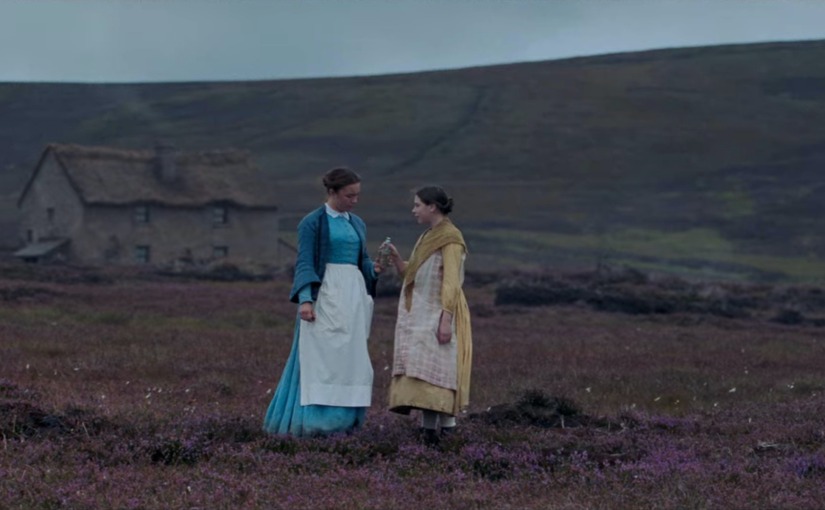
Upon its release, The Wonder received praise for its strong performances, particularly from Florence Pugh, and its thought-provoking exploration of human psychology and belief. The film’s quiet, atmospheric style and slow-building tension resonated with critics, though some found its pacing deliberate. Nevertheless, The Wonder has been recognized for its emotional depth and philosophical themes, making it a powerful and introspective piece of cinema. The film continues to spark conversations about faith, doubt, and the nature of miracles, leaving a lasting impression on audiences.
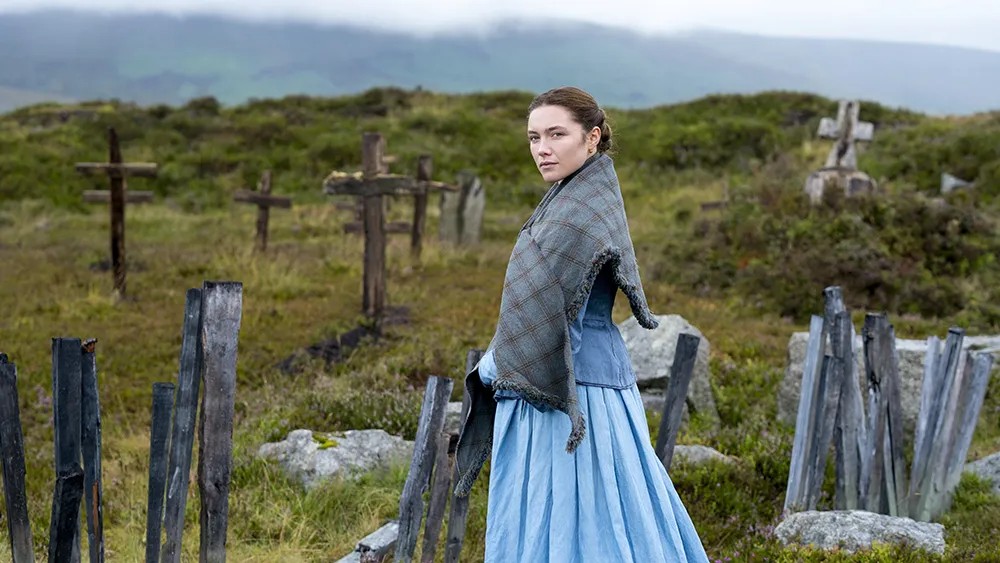
The Wonder is a gripping and thought-provoking film that skillfully combines psychological drama with historical themes. With a captivating performance by Florence Pugh and a compelling exploration of belief and doubt, the film offers a deep and emotional journey into the human psyche. Sebastián Lelio’s direction creates an immersive and atmospheric experience, while the screenplay adapts Emma Donoghue’s novel with nuance and sensitivity. The film challenges viewers to question the nature of faith and survival, making it a memorable and impactful piece of cinema.
